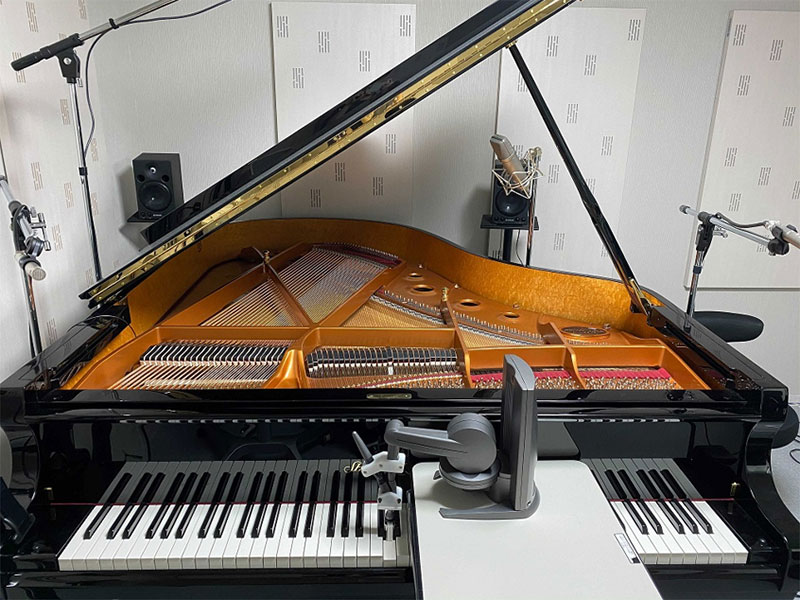In JST Strategic Basic Research Programs, Drs. Masato Hirano and Shinichi Furuya, Sony Computer Science Laboratories, Inc., discovered a training method to further improve the delicate touch of pianists.
Experts such as pianists, athletes and surgeons acquire advanced skills through tremendous amounts of practice. It is difficult to further improve upon these skills, and the methods for exceeding these limits have not been clarified.
The research group developed a system that freely controls the weight of piano keys using a haptic device, which enables to control the strength and direction of the force. This same group has also invented active haptic training (AHT) that enhances tactile force sense during exercise by presenting the tasks of discriminating the difference in piano key weights and the correctness of answers. Three experiments were conducted using AHT in 64 pianists and 25 ordinary persons who had received no professional music training. The results showed that enhancing the somatosensory function of fingertips with AHT could improve the accuracy of keystrokes, breaking through the ceiling effect of over-trained skills. Such skill improvement was not observed through usual repetitive practice, or in ordinary persons with no piano experience.
This study demonstrated that, in order to exceed the limits in the exercise skills of experts, it was important to optimize the method rather than increase the amount of training. This finding is expected to be useful for elucidating principles of the nervous system that define the limits in exercise skills, new training theories to exceed the limits of experts’ expertise, and functional flexibility (plasticity) of the expert’s brain, as well as in the development of rehabilitation methods for neurological disorders in which finger functions were impaired due to excessive training.
-

Haptic piano system The haptic device is attached to the piano and can freely manipulate the weight of the piano key. ©Sony CSL
Program Information
- JST CREST
- Research Area “Creation and development of core technologies interfacing human and information environments”
- Research Theme “A study on skill acquisition mechanism and development of skill transfer systems”
Journal Information
M. Hirano, M. Sakurada and S. Furuya, “Overcoming the ceiling effects of experts' motor expertise through active haptic training”, Science Advances, Published online November 20, 2020, doi: 10.1126/sciadv.abd2558
Contact
-
[About Research]
Hirano Masato
Sony Computer Science Laboratories, Inc.,
TEL:+81-54-974-5055
E-mail: hiranonws.csl.sony.co.jp
-
[About Program]
Tatesawa Hiroko
Department of Strategic Basic Research, JST
E-mail: crestjst.go.jp
